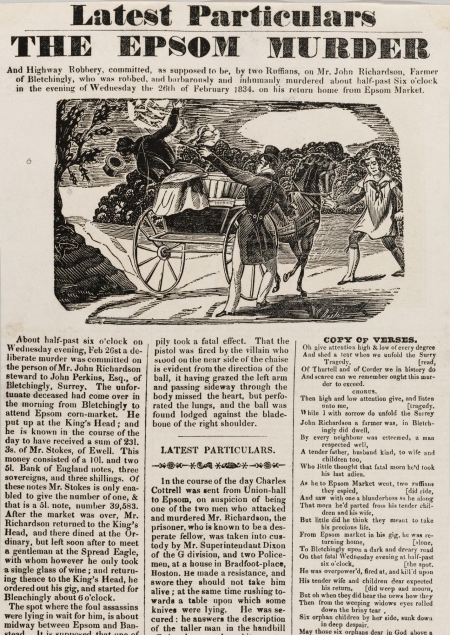
Between 1735 and 1868 in England and Wales, more than 9,300 people convicted of capital crimes were publicly executed.
Before reforms of 1830s there were over 200 capital crimes. These included:

- arson
- assault
- burglary
- counterfeiting
- forgery
- highway robbery
- house breaking
- larceny
- murder
- piracy
- rape
- sodomy
- theft of cows, horses, or sheep
- treason
By the first decade of the 19th century a thriving business in crime and execution broadsides had developed in England. These single sheet and frequently sensational publications were often sold at the execution itself.

Crime broadsides were also distributed across England and Wales by itinerant peddlers, far from the courts and gallows of the major cities and towns. They are one of the earliest examples of mass street literature.
In addition to sometimes lurid descriptions of the crime and trials, many execution broadsides featured the "dying speeches" or confessions and last words of convicts on the scaffold, sometimes in the form of poetry. Often there were warnings to would-be criminals. Increasingly, broadsides were illustrated with wood engravings, showing the execution scene or vignettes of the crime scene.
The Harvard Law School Library's collection of crime and execution broadsides continues to grow and offers a glimpse into crime, punishment, and popular culture.
Accessing These Materials
- The broadsides in this collection are available online
- Because most of the broadsides have been digitized, the Harvard Law School Library's Historical & Special Collections generally does not allow access to the originals.